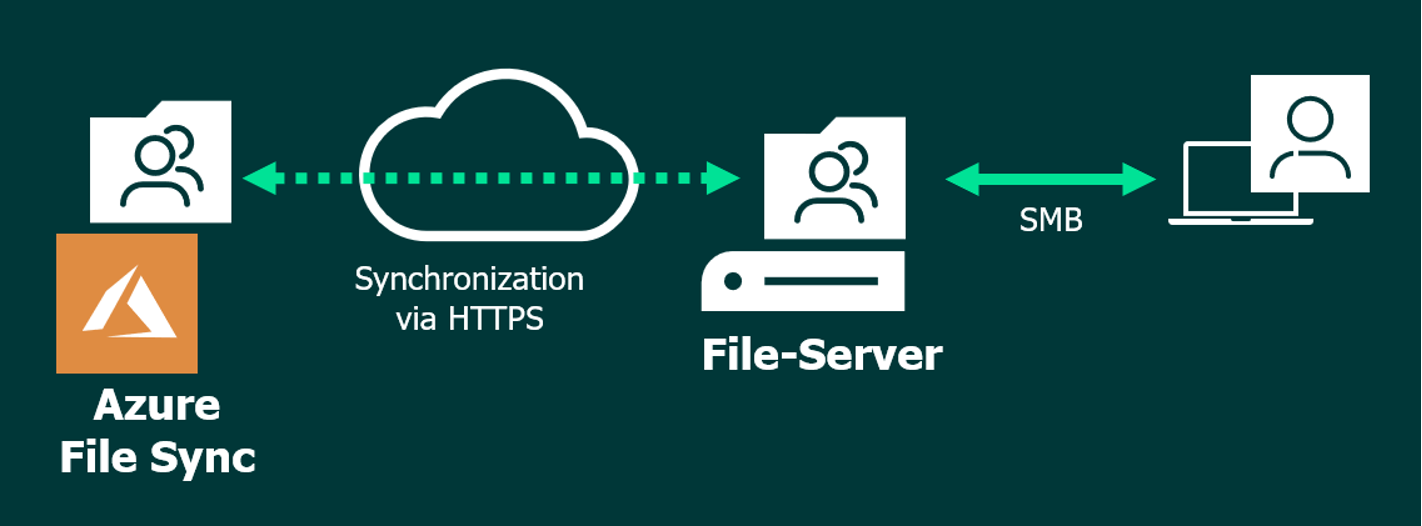
Azure File Sync information back-up with Veeam NAS back-up capabilities
A lot more questions result from customers up, such as if they can back again up Azure File Sync data with Veeam and how exactly to take action. The short solution is “yes we are able to!” But it’s smart to check the various configuration options.
The most typical question is approximately Azure File Sync with “Cloud Tiering.” Veeam Backup & Replication v10a brings assistance for the “Cloud Tiering” feature.
Azure File Sync construction options
In the backdrop of Azure File Sync, there’s an SMB share hosted in Azure. All documents are synced to the talk about via HTTPS. The discuss hosted in Azure could be configured to end up being reachable on the internet as a standard SMB reveal on TCP port 445 (figure 1). Needless to say, only genuine IP addresses ought to be permitted to access the talk about.
You can find two options how Azure File Sync may be used.
- Document synchronization (such as Microsoft OneDrive but without versioning)
- Document synchronization + Hierarchical Storage Administration (Cloud Tiering)
If clients only use document synchronization (option 1), back-up can be achieved normally through the use of image-based backup then. This may be virtual machine-based backup with Veeam Back-up & either; Replication or physical device backup with Veeam Broker for Microsoft Home windows. Technically, Veeam NAS backup capabilities are a choice also, but economics prevent that option usually. All files are kept on the neighborhood file server with choice 1.
With choice 2, old data files that aren’t accessed anymore could be moved to the cloud (cloud tiering). Relocating unused, old documents to cheaper storage space aka “hierarchical storage administration” has existed for many years. Offloaded or tiered data files are shown in Home windows Explorer with 0 bytes “size on disk” (shape 2) and a little X-icon showing users that the document tiered. From the technical perspective, they’re reparse points. Veeam Back-up & Replication 10a includes a new feature to take care of these Azure Document Sync reparse points.
 Figure 2: No disk space using files which were tiered to cloud
Figure 2: No disk space using files which were tiered to cloudWhile tiering could be interesting from the cost perspective, it leads to head aches for migration scenarios once the file server doesn’t have enough disk room for the tiered information. The optimistic side-effect of failing to have enough local disk area is definitely, that ransomware stops at the idea when the document server is stuffed to 100% disk space. I’d not rely on this kind or sort of “protection.” As cloud tiering will not prevent ransomware episodes, an effective backup concept is necessary.
Backing up cloud tiered documents
With version 10a, a Veeam customer can back up cloud-tiered SMB shares like any SMB share (see body 3). The cloud tiering can be transparent for the backup administrator. The one thing he might notice is, that it takes because of possible bandwidth limitations longer.
The initial configuration step would be to add the file share to the inventory in Veeam Backup & Replication (Inventory -> Document Shares -> Add Document Share). Figure 4 displays the effect in the console.
 Figure 4: A document share in the inventory
Figure 4: A document share in the inventory
The final and second step would be to develop a File-Share backup job. Select the discuss you need to back up (determine 5) and configure where you can store the info and the backup plan.
Additionally it is recommended to get a duplicate of the backups within a secondary location to meet up the 3-2-1 Rule.
That’s all to back again up a file talk about that’s configured with Azure Document Sync Cloud Tiering. Veeam Back-up & Replication handles the reparse factors or stub-files (mentioned previously) in a particular way. It could back up the data files without requiring totally free disk room to download the documents to the fileserver. That’s important because conventional “copy & paste back-up” would recall all data files to the document server and fill the disk there.
Summary
Burning data from Azure Document Sync is not any nagging problem along with Veeam Backup & Replication 10a. Just execute a back-up from the SMB discuss as you’ll do for additional SMB shares.





You must be logged in to post a comment.